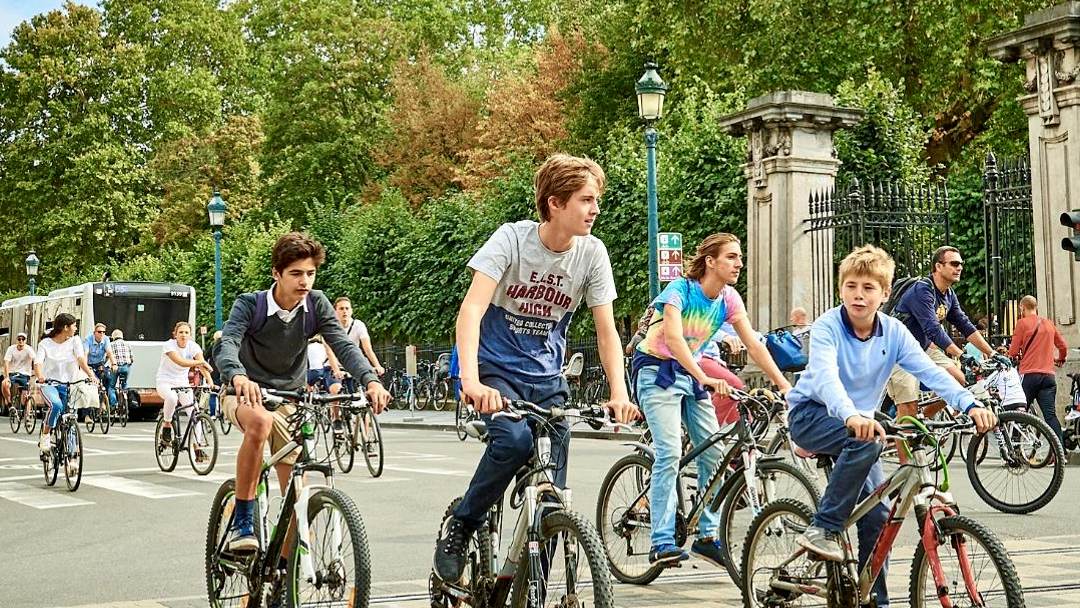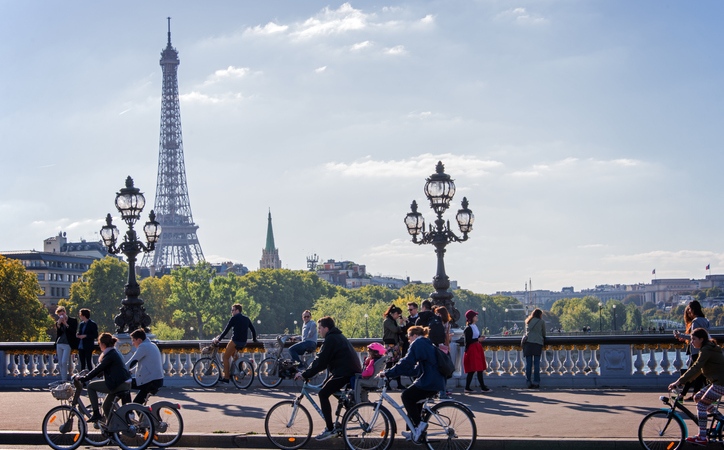
Car-free days show us the way towards walking and cycle-friendly cities
On Car Free Day 2023, usually traffic-clogged avenues and streets became places of leisure and play, as cars gave way for people. In Belgium, more than 40 towns turned their streets into car-free havens.
Another World Car-Free Day is behind us, and the experience showed how streets can be a beautiful place when filled with walkers, runners and cyclists instead of motorised vehicles. Celebrated late in September, this one-day-only event took place across Europe, coinciding with European Mobility Week. In Belgium, more than 40 towns turned their streets into car-free havens on Sunday, 17th September, including Brussels, a city known for heavy traffic – and people loved it.
Brussels Mobility minister Elke Van den Brandt called the event a great success and has made clear she would like to organise a car-free Sunday once a month in the Belgian capital. She is busy trying to convince other mayors in the city to approve a second car-free day in the spring, and fingers crossed that the initiative becomes a reality! Days like these show “the potential of the city with a fair distribution of public space”, the Mobility minister said.
The origins of car-free days started with, believe it or not; oil. Or rather, because of the lack of it. In 1973, during the Organisation of the Petroleum Exporting Countries (OPEC) oil embargo and crisis in the West, several countries including, Denmark, the Netherlands, Switzerland and West Germany decided to make some Sundays ‘car-free’ to save on the usage of oil. This decision from the top quickly spread around the world and grew into a movement convinced of the power of turning the streets over to citizens. In many Latin American cities, such as Bogota, Colombia, a car-free day under the name of Ciclovia occurs every Sunday, a prime example of the success of the movement.
Nowadays, discussions about ‘car-freeing’ urban space for cyclists and pedestrians have returned to the political table of many cities. This time triggered by another crisis – COVID-19. Seen as a healthy social distancing measure during the pandemic, cities like Milan, Paris and Brussels decided to change their urban landscape, making it more bicycle-friendly. Just in Brussels, bicycle use rocketed up 40%, probably because of the 40km of newly built bicycle lanes. Now, after the pandemic, the shift of space away from cars towards active travel continues to progress.

Yet, as ECF's CEO Jill Warren mentioned at Urban Mobility Days in Sevilla, we should not wait for another crisis to happen to drive forward change.
Undoubtedly, if we are to fight climate change, cities ought to think about building more car-free zones, and increasing bicycle use.
Climate change is being accelerated by the pollution that many motorised vehicles emit. The EU's Green Deal, Sustainable and Smart Mobility Strategy and Zero Pollution Action Plan oblige us to reduce our greenhouse gas emissions. As road transport creates around 20% of the EU's total CO2 emissions, it is important to tackle pollution in the sector. Not just because it badly affects the planet, but also because it deteriorates the quality of the air. Many cities are struggling with the low quality of air, and such a crucial component of human lives should be addressed seriously, as millions worldwide continue to die prematurely from poor air quality.
Car-free zones can help the local economy. As ECF wrote, retailers operating in local economies seem to receive more customers when more people are cycling than driving, and at least in the city centre. This can be a source of growth for many local retail businesses. Moreover, ECF also analysed how cycling can generate job creation through better integration of cycling with other modal sharing options. Interestingly, the bicycle sector had higher employment rates than other transport sectors.
As a physical activity, cycling tends to help with a series of health benefits, including mental well-being. It can help reduce the risk of cardiovascular diseases, type 2 diabetes, some cancers, and osteoporosis. Even moderate cycling can reduce the risk of Alzheimer's disease and depression, while also fighting cognitive decline. If you want to know more about the health benefits of cycling, you can read ECF's report.
Today, the reality faced by some cities, of high levels of traffic, with polluted streets clogged with cars may be viewed as the normal that will never change. Yet car-free days offer a glimpse of an alternative future, one where people are put first, and cycling is at the centre of active and inclusive mobility for all.
Contact the author
Recent news!
Upcoming events
Contact Us
Avenue des Arts, 7-8
Postal address: Rue de la Charité, 22
1210 Brussels, Belgium









